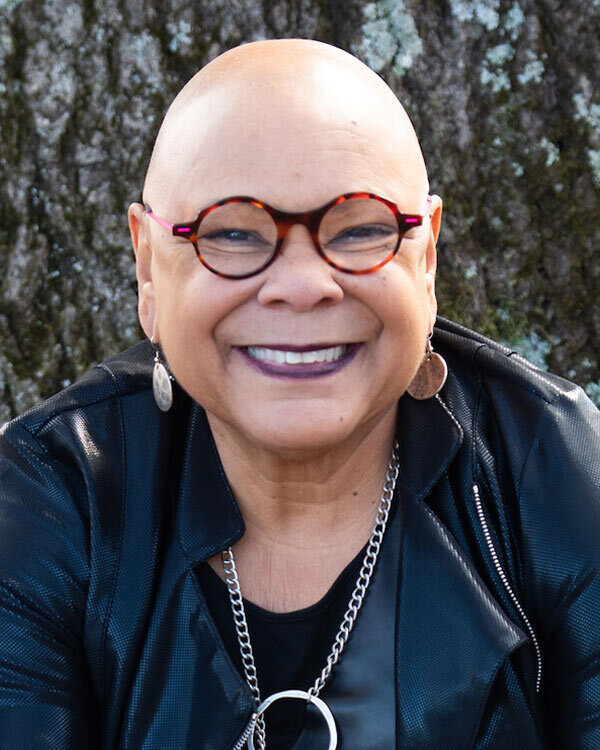Prior to devoting myself to the Dharma and to teaching the Dharma, I had a corporate job as a training and organizational development consultant working in the Silicon Valley and San Francisco. I specialized in executive coaching and supported leaders in understanding the power dynamics and behavioral implications of mergers and acquisitions—what happens and can happen when you bring diverse cultures together. As I have experienced Western convert Buddhism, especially Theravāda Buddhism, two of the three jewels are commonly emphasized—the Buddha and the Dharma—but less care is given to the third jewel, Sangha, the training ground for the embodiment of spiritual values through practice and kinship. My experience has taught me that there are predictable dynamics we can glean when we turn our attention towards the relational quality of culture and of sangha.
Let me begin by talking about the Two Truth Doctrine that’s taught in our tradition: there’s ultimate reality and relative reality. In ultimate reality, I’m a nobody. I’m formless, undefined, vast, a skinless body of awareness. In the relative world, I’m a somebody. I’m form—I’m Ruth King. I’m a great grandmother. I’m African American. I’m woman. I’m lesbian. I’m all these things. In the ultimate realm, I’m dust particles floating in the wind. Every now and then there’ll be a formation, an aggregate, or a constellation that defines a certain sense of who I think I am for that moment. Then a strong wind will come along and that experience is dust, dead and gone.
In the relative world, we’re part of these constructs, and we hold onto a sense of self out of ignorance and fear. But in ultimate reality, there’s no safety because there’s nothing to fear. These two realities are two expressions of one truth. When we go on retreat, we begin to touch into this ultimate reality and we can glimpse this vastness, formless, spaciousness, and the freedom that the heart, mind, and body experiences in those potent moments. And as we leave a retreat and to go back into what we call “the real world,” we become more frightened and contracted. Why? Because we are in the stark reality of the relative. We are instantly reminded that our practice is our lives, not just on the cushion. Yet it is within this relative field that our practice can ripen.
T.S. Elliot said, “The eternal is outside of time, yet it is only in time that the fruits of spiritual liberation can manifest.” There is the eternal and timeless, yet we know this from our direct experience. It is our bodies, our kinship and our relationship to this collective or relative realm that polishes the Third Jewel of the Sangha. In other words, we need each other to wake up, to know intimately whether our practice is actually our practice. We discover this from our relationship to life and to each other. We can perhaps recognize how belonging is a relative necessity for awakening.
What would it be like to consider that we are here to embrace our membership in each other’s lives? Your practice is not just about you or your individual awakening; your practice is about how you benefit (or not) the quality of our collective—of sangha. Knowingly or unknowingly, we have an impact on others. Thanissara says, “We’re all a ‘soup’ that we need to taste.” We each bring an ingredient to the pot that flavors and nurtures our collective awakening. When spices are missing in our sangha soup, we may not be able to name it, but we can taste that something is both lacking and longed for.
Thich Nhat Hanh says that there’s no such thing as an individual. In the Mahayana tradition, one can take Bodhisattva vows, and the vows are pretty aspiring: “Sentient beings are numberless. I vow to liberate them. Delusions are inexhaustible. I vow to transcend them. Dharma teachings are boundless. I vow to master them. The Buddha’s enlightened way is unsurpassable. I vow to embody it.” These vows rely on the cultivation of bodhicitta—the aspiration to mature a heart mind that benefits all beings and an understanding of our interdependence. Our practice is homeopathic. A few “drops” of us devoted to a wise path with heart is massively potent, and it is this radiance that nurtures our belonging.
Martin Luther King said it well: “ . . . that all life is interrelated. That somehow we’re caught in an inescapable network of mutuality tied in a single garment of destiny. Whatever affects one directly, affects all indirectly . . . Strangely enough, I can never be what I ought to be without you being what you ought to be. You can never be what you ought to be until I am what I ought to be. This is the interrelated structure of reality.” This is a Bodhisattva expressing the deep understanding of both relative and ultimate reality.
Of course, the path is not always comfortable, but there are perks! Ajahn Tejaniya says that people only become awake and alert when there is some sort of discomfort or distress. They stop paying attention once they are comfortable again. So we might want to consider that discomfort, which is inherent to belonging, is a core competency for awakening. The perk: discomfort gets our attention, and what we do next not only matters, but is something only you can give—something we are all waiting for.
